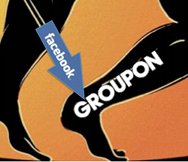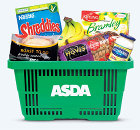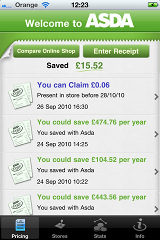
If Google are willing to try and pay a reported $6bn for a company which is little more than two years old then it must be doing something interesting - and Groupon is certainly generating some interest.
Depending on how you look at it, Groupon is either the hottest trend since...er... the last one, or is simply a purveyor of local discount deals via email.
However, if "imitation is the sincerest form of flattery" then with both Google and Amazon looking to have a bit of the discount deals pie by each creating (or buying into) their own version, there must be something to it.
Group buying is nothing new, back in the (first) dot-com boom years there were a number of group buying start-ups, but these failed to gain traction despite significant above the line spend. One of the reasons for this is that these early pioneers focused on selling branded goods like a standard e-commerce site, but would lower the price based on the number of committed sales. In reality however, they would have bought the goods beforehand and so the "group discount" wasn't negotiated based on the group itself. Even if it was, mainstream retailers would already be buying significantly more volume of the same item and so beating their prices was hard.
So whats changed? Quite simply, relevance - based on location, timing and friends.
These offers are typically from local businesses, with subscribers selecting their chosen city to receive offers from. The offers are distributed via email and with most subscribers now having always on internet access via smart phones or tablets, the offers become timely, with users able to react quickly to get the deal. Finally, social media means both the offers and the offer provider and getting more visibility as subscribers quickly push them out to friends.
Current group buying leader Groupon describes their service as providing "valuable new customers, guaranteed". Going on to say:-
These subscribers are not looking for “the perfect deal.” They’re looking for the perfect excuse to try something new. We get them to your business, and you bring them back again and again.
Quite clearly, Groupon see themselves as an acquisition channel. A way for smaller brands or independent retailers to cut through the clutter of both digital and traditional marketing channels, many of which are inaccessible to smaller merchants, accessing customers directly with an attention grabbing offer.
The issue with this though is something which Groupon seem to know, but possibly don't recognise when they say "We get them in [..] you bring them back again and again". They may drive customer acquisition in the first instance, but it's clearly up to the merchant to get the customer to come back - and this requires a retention strategy, something Groupon is simply ignoring.
Facebook on the other hand is not known to miss a trick.
As reported in Forbes, they are testing a new feature called "Buy With Friends" which allows users to publish a purchase within their newsfeed and for friends to be able to click on this and purchase it themselves with a discount. The feature will let a user "unlock" a deal and then share that same deal or discount with other friends who can take advantage of the fact that it's already been unlocked. In tests, Facebook reported that more than 50% of people chose to share their purchase.
Currently it only works with in-app purchases using Facebook Credits, but it's easy to see how this could be expanded to real worlds goods and services.
As I discussed in a previous post, there is a trend now for retailers linking their e-commerce activities directly into Facebook, something we've discussed in more detail in a white paper called "The Future of Relationship Marketing". Joining the dots, if retailers linked their e-commerce into Facebook this would allow them (large and small) to both publicise purchases by existing customers and to push deals to prospects.
The combination of Facebook Places, Deals, "Like" and "Buy With Friends" provides a unique array of services to merchants with an pre-existing audience of 600m people. It won't take much for Facebook to combine these in a way which competes head-on with Groupon, but adds longer term value through the ability to track these interactions and build further contact - linking the initial acquisition to ongoing retention and loyalty.
You could argue that Groupon shouldn't be the only one worried here - every loyalty agency will (should) also be looking over their shoulder at the fast approaching Facebook juggernaut. The winners will be those embracing it to drive even greater value for their clients and customers.


